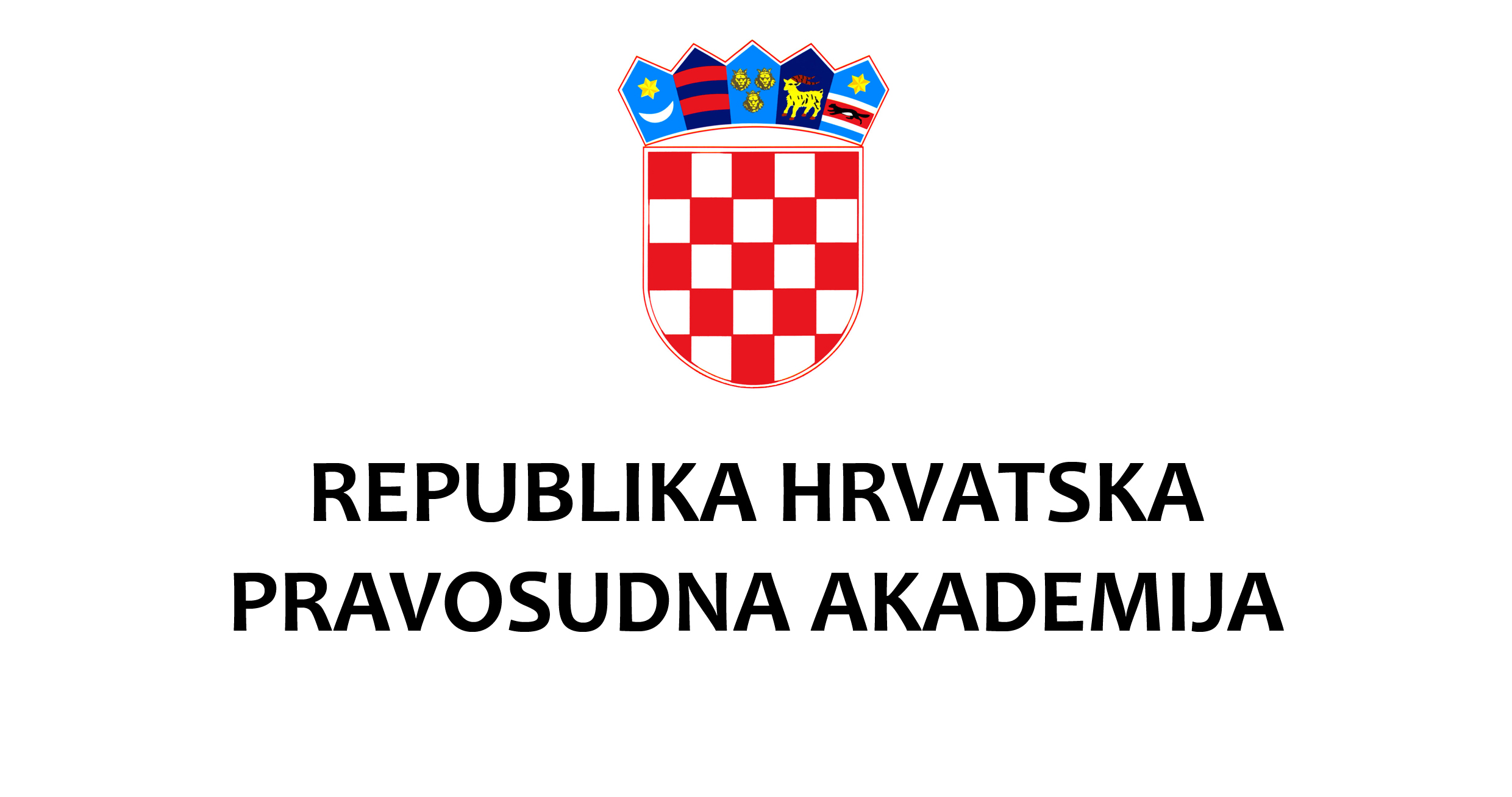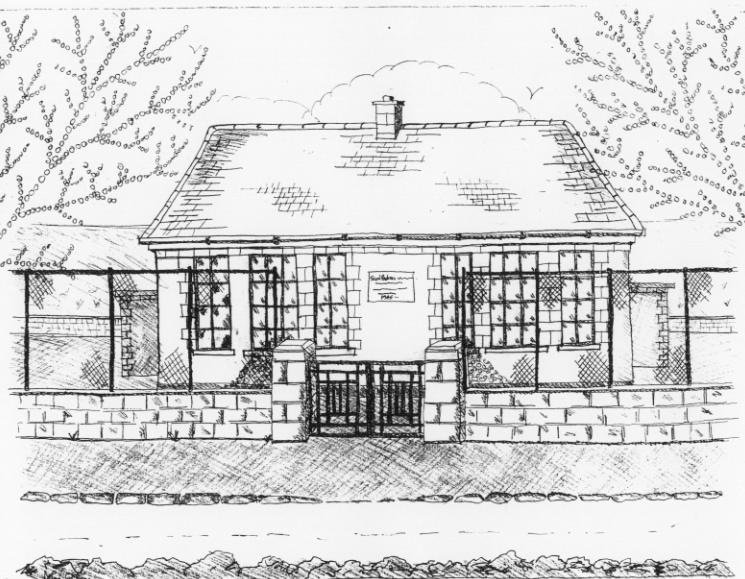APRIL 2015 PROTOCOL FOR RESPONDING TO ALLEGATIONS OF CHILD
FACT SHEET 79 15TH APRIL 2003 USE27 APRIL 2008 NOTE TO EDITORS HOTEL SECTOR
3 AUSLANDSVERTRETUNG STAND APRIL 2007 REF RK
APRIL 25 1846 THE MEXICANAMERICAN WAR BEGAN WHEN
ENERGY PERFORMANCE CERTIFICATES INFORMATION LEAFLET APRIL 2008 BACKGROUND
FORÅRSOPRYDNING SØNDAG DEN 24 APRIL 2016 KL 1014
Protocol for responding to allegations of child trafficking in intercountry adoption

April 2015
Protocol for Responding to Allegations of Child Trafficking in Intercountry Adoption
Information to assist adoptive families and adoptees
Child trafficking1 in the context of intercountry adoption is a complex and sensitive issue.
Under international law, Australia has a number of obligations in regard to preserving the safety, rights and interests of children. The main international legal framework which governs intercountry adoption is the Hague Convention on Protection of Children and Co-operation in respect of Intercountry Adoption. Australia also has binding legal obligations under other international instruments including the Convention on the Rights of the Child and the Protocol to Prevent, Suppress and Punish Trafficking in Persons, Especially Women and Children.
Allegations or concerns about a particular adoption can be distressing and potentially life‑altering for all parties, particularly the child or children involved. In working to address these issues, it is important not to lose sight of the best interests of the child and the need to be sensitive to the concerns of both Australian adoptive families and overseas birth families. The Australian Central Authorities take any credible allegations or concerns seriously and are committed to maintaining the integrity of Australia’s intercountry adoption programs.
This protocol, developed by the Australian Government Attorney General’s Department (AGD – the Australian Central Authority under the Hague Convention) in consultation with the State and Territory Central Authorities, is designed to provide information and assistance to adoptive families and adoptees in circumstances where there have been allegations or concerns about child trafficking within a country of origin, with the subsequent adoption of a child or children to Australia via the Australian intercountry adoption process or specific concerns raised in individual cases.2
There are inherent risks in intercountry adoption. Whilst the Australian Government uses its best endeavours to ensure Australia’s programs only operate in compliance with Hague Convention principles, prospective adoptive families would be aware of the risks that are nevertheless involved.
Where concerns about child trafficking in an adoption do arise, it is recognised that this may leave parties feeling vulnerable and uncertain, particularly given that the adoptive family has undertaken the adoption in good faith and in compliance with all Australian requirements. It is also acknowledged that adoptive families and adoptees may choose to undertake their own enquiries, without assistance from AGD or their relevant State or Territory Central Authority.
The circumstances relating to each individual intercountry adoption will be unique, and the needs of each adoptee, adoptive family and birth family will differ. Given these variables, the protocol is deliberately general in parts and the information provided is intended to be a guide only.
Raising Concerns
Concerns about child trafficking may arise for an adoptive family/adoptee in a number of ways, including:
observations of irregularities in current intercountry adoption cases
comments made by an adopted child about his or her background
concerns about a current intercountry adoption raised by an adoptive family
concerns about a past intercountry adoption raised by an adoptive family or an adult adoptee
concerns about a past intercountry adoption raised by a birth family or authority in the country of origin
reviews or investigations conducted by a country of origin, another receiving country or Australian Central Authorities
media reports
legal proceedings, and
origin searching.
In the first instance, concerns regarding the circumstances of an adoption should be raised by adoptive families or adoptees with the relevant State or Territory Central Authority3 or AGD. Where concerns are raised with AGD, close liaison with the State/Territory will be necessary given their responsibility for processing adoption applications. Identifying details about the case will therefore be required.
Concerns about child trafficking in an intercountry adoption may come to the attention of AGD through official government channels, without the knowledge of the adoptive family or adoptee. Where this occurs, AGD will comply with relevant privacy obligations and take action as appropriate. This could include liaising with the State or Territory Central Authority and may include the relevant authorities contacting the adoptive family or adult adoptee.
Review of Adoption Documentation
Where concerns are raised, the State or Territory will review the documentation available on the adoption file (noting that documentation may be limited in some cases). In doing so, the State/Territory will consider whether there are irregularities or information on file to suggest that further action is required. States/Territories are well equipped to make this assessment, given their long experience in intercountry adoption casework, and operational and historical knowledge of programs.
A review of the adoption documentation alone may not suggest any obvious irregularities (ie the available information on file may appear consistent with established practice and procedure for an adoption from a country at that particular time). Careful consideration will therefore be given to whether, despite the existence of appropriate adoption documentation, concerns identified continue to suggest that irregularities do exist.
It is also important to note that if concerning information does arise, it does not automatically amount to child trafficking having occurred within the country of origin. However, consistent with Australia’s cautious approach to these issues, further enquiries may be warranted. Where concerns about an adoption have been raised by the adoptee or adoptive family, they will be advised of the outcome of the State/Territory review of the adoption documentation. This may be that no further action is deemed warranted or the matter is to be referred to AGD for its consideration.
The State or Territory will advise AGD of all concerns raised or identified regarding an adoption regardless of the outcome of the documentation review. Non-identifying information about the case will be used for record keeping purposes and for trend monitoring as part of AGD’s program management role.
Further Action or Enquiry
In addition to advising AGD of all concerns raised (for program monitoring purposes), the State or Territory Central Authority will refer any case to AGD for appropriate action where they consider further action may be warranted. Where concerns were initially raised with the State/Territory directly rather than AGD, the State/Territory will only provide non-identifying details of the case to AGD. Generally, a State/Territory will require the consent of an adoptive family and/or an adult adoptee to share information with AGD as the information is to be used for a purpose other than which it was collected.4 If consent is not forthcoming, AGD will have a limited ability to make meaningful enquiries with a country of origin about the case.
With reference to Hague Convention principles and the Intercountry Adoption Strategic Plan, AGD will consider whether the irregularities give rise to credible concerns about child trafficking within a country of origin, and whether further action or enquiries are required.
Where credible concerns exist, AGD will request that the relevant overseas authority make appropriate enquiries into the circumstances surrounding the child trafficking concerns or allegations. Requesting this assistance is consistent with the cooperative principles of the Hague Convention. There is an obligation on both Central Authorities to work together to eliminate any obstacles to the Convention’s application where it is suspected that provisions of the Convention have not been respected.5 Countries of origin are well placed to consider what measures can be taken regarding practices occurring within their adoption system.
Whilst AGD will endeavour to raise concerns and proactively seek responses, AGD cannot influence the priority or resources that authorities in a country of origin allocate towards investigating matters referred to them. Responses provided by overseas authorities may be influenced by factors such as the time that has elapsed since the adoption took place, availability of records and information about the adoption, or the need to liaise with other adoption or law enforcement agencies.
Maintaining Contact and Confidentiality
AGD and the State and Territory Central Authorities recognise the importance of ongoing contact with an adoptive family or adult adoptee throughout this process. The State/Territory will be the primary contact for providing updated information about the progress of enquiries (where such updates are available) or responding to further questions or concerns. A dedicated senior case officer within the relevant State/Territory and within AGD will be appointed. The State/Territory contact officer will have day to day contact with the affected families as the first point of contact and the Commonwealth contact officer will fulfil the Commonwealth’s broader overall coordination, management and policy responsibilities.
The case will be treated confidentially in accordance with relevant privacy obligations. Unless the law provides otherwise, the sharing of any identifying information will be subject to appropriate consents. Where the adopted child is under the age of 18 years, AGD and the State/Territory will not discuss those concerns with the adopted child without the consent of the adoptive parents. Australian Central Authorities encourage openness in adoption but acknowledge that families have an important role in making decisions including how and when to share any concerns with their adopted child.
Making Your Own Enquiries
It is open to adoptive families or adoptees to undertake private enquiries about child trafficking concerns, through police or other channels. This may occur in addition to, or instead of, formal enquiries being made through AGD. Where private enquiries are pursued, it is requested that the State or Territory Central Authority or AGD be notified of any child trafficking concerns, as there may be broader program implications to be considered.
Broader Program Implications
Where credible concerns are raised about an adoption or a group of adoptions (eg from a particular adoption agency or region), AGD, in consultation with States and Territories, will also consider the broader implications for the operation of the intercountry adoption program in accordance with the Strategic Plan. Depending on the circumstances, this may involve a range of actions including freezing adoptions with specific adoption agencies while enquiries are undertaken, suspending the program pending further enquiries, or limiting the sending of new applications.
Where credible concerns are raised, an assessment needs to be made about whether there are likely to have been other adoptions subject to similar practices. Discussion between AGD and the State and Territory Central Authorities may need to occur in order to consider whether to contact other families who may also have been affected.
Support and Assistance for Adoptive Families and Adoptees
This part of the protocol aims to provide broad guidance on appropriate services or sources of assistance that an adoptive family or adult adoptee may wish to access. In doing so, it recognises that the needs of each adoptive family or adoptee will differ. Whether there are any possible avenues for financial assistance, at the Commonwealth and the State or Territory level, will need to be considered on a case by case basis. Adoptive families or adoptees may also wish to access other services or resources not mentioned in this protocol (eg intercountry adoption support organisations). As noted above, a dedicated contact point within the State or Territory will be appointed to liaise with the adoptive family/adoptee.
Counselling/Casework Support Services
In the first instance, the adoptive family or adoptee should discuss their particular needs with the relevant State or Territory Central Authority. The State/Territory will be able to provide direct counselling and casework support in line with the normal levels of counselling and support provided in their adoption and post adoption support programs. The nature and scope of the services provided will be determined on a case by case basis and discussions about any broader provision of services may involve AGD, where appropriate. Ongoing or future support may be required, particularly as adopted children become older and seek to come to terms with the circumstances of their adoption. The Australian Branch of the International Social Service (see additional information below) also offers counselling and support services.
Contact Facilitation and International Services
A range of services are provided by the Australian Branch of the International Social Service. ISS Australia provides professional casework and advocacy services under international human rights frameworks, with a special emphasis on children. In addition to counselling and support services, ISS Australia provides contact facilitation, tracing and family reunification services.6
Legal Issues
AGD and the State and Territory Central Authorities are unable to provide legal advice to individuals. As a general principle, however, should legal proceedings be initiated in Australia in relation to an adopted child, the best interests of the child will be the primary consideration of the court. If required, the Law Society in each State or Territory may be able to provide a referral to a legal practitioner with experience in family law or children’s issues. Lawyers seeking general reference material on intercountry adoption may wish to refer to the AGD website at <www.ag.gov.au/intercountryadoption> in the first instance.
Financial Assistance - legal and other related costs
Costs may be incurred by adoptive families/adoptees in accessing services. Questions about whether any applicable State or Territory financial assistance options apply in the circumstances of the cases should be directed to the relevant State or Territory Central Authority, who will also consult with AGD.
AGD administers a number of financial assistance schemes for legal and other related costs that may be available depending upon the circumstances of the case. General information about possible financial assistance at the Commonwealth level can be provided by the AGD contact officer for the case. Any requests for assistance will be considered on a case by case basis by both the State and Territory Central Authorities and AGD.
Managing Media Attention
Concerns about child trafficking in adoption cases may be raised in the media. Intercountry adoption regularly attracts media attention and this can present additional challenges when dealing with child trafficking concerns. If this does occur and assistance is required in managing that interest, the State or Territory Central Authority may be able to assist in the first instance.
1 Circumstances which might give rise to concerns about ‘child trafficking’ may include concerns about the identity and documentation relating to a child, the circumstances relating to the relinquishment or abandonment of a child, and/or undue influence or inducements relating to the consents in the adoption process.
2 This protocol is not intended to cover cases where there is a suggestion of wrongdoing by the Australian parents, or expatriate adoptions (which are private adoptions by families residing overseas rather than adoptions arranged through a State or Territory Central Authority). Concerns about an expatriate adoption should be raised with the authorities in the country of origin that facilitated the adoption and with law enforcement authorities where appropriate. Families may also wish to consider accessing the range of services provided by International Social Service Australia as outlined in this document.
3 The State or Territory Central Authority that facilitated or is facilitating the intercountry adoption.
4 Privacy laws may differ in each State and Territory.
5 Articles 33 and 7 of the Hague Convention.
6 For further information see <www.iss.org.au>. Fees apply to services offered by ISS.
![]() Page
Page
Page 9 cbd Distr General 28 April
VAN KROON VANDER B VERZONDEN DONDERDAG 5 APRIL
(TEKST GELDEND OP 19032012) WET VAN 26 APRIL
Tags: allegations of, been allegations, allegations, child, april, protocol, responding
- PRÁCTICA 1 REALIZACIÓN DE EJEMPLOS DE SISTEMAS DE ESPERA
- PAGE 2 OF 2 FIELD MANUFACTURING REVISION OF MANUFACTURING
- UNIVERSIDADE DOS AÇORES ANO LECTIVO 20 DISCIPLINA 00000000000000000000000000000000000000000000000000000000000000000000000000000000000000000000000000000000000000000000000
- GERPAN® 4RSRF60 TOEPASSINGSGEBIED EN VOORDELEN VOOR BEPAALDE CONSTRUCTIES
- TMMOB MİMARLAR ODASI MESLEKİ DAVRANIŞ KURALLARI YÖNETMELİĞİ (41DÖNEM OLAĞANÜSTÜ
- STRONA 3 Z 3 FORMULARZ F04 DO PW31 ZAŁĄCZNIK
- FORM IR37B (1) DECLARATION BY NONSINGAPORE SRS ACCOUNT HOLDER
- TC TRABZON ÜNİVERSİTESİ DERS MUAFİYETİ VE UYUM
- SERVICIO DE HABILITACIÓN Y SEGURIDAD SOCIAL CONSULTAS MÁS FRECUENTES
- 01001 CHAPTER 211 RULES FOR THE DISPOSAL OF ANIMAL
- TITLE DR FIRST NAME SANJAY LAST NAME MISRA PHOTOGRAPH
- IMPORTERS OF METAL SCRAP IN INDIA MADHU SUDAN METALS
- DDª CON NIF EN CALIDAD DE TITULAR
- EL ENDEREZAMIENTO DE LA DEMANDA PERMITIDO POR EL NUEVO
- FRENCH AMERICAN BACCALAUREAT WHAT IS THE FRENCHAMERICAN BACCALAURÉAT (BFA)?
- NA TEMELJU OPĆE UREDBE O ZAŠTITI PODATAKA (EU) 2016679
- AKER SYKEHUS NEDENSTÅENDE ER MENT Å SKULLE GI SVAR
- HUMEDALES ARTIFICIALES COMO ALTERNATIVA PARA MEJORAR LA
- OBRAZAC ZA RAZOTKRIVANJE INTELEKTUALNE KREACIJE POVJERLJIVO POVJERLJIVOST INFORMACIJE IZNESENE
- EJERCICIOS NOMENCLATURA (4) FÍSICA Y QUÍMICA 1º BAC IONES
- BIS SCIENCE AND SOCIETY COMMUNITY CHALLENGE GRANT SCHEME
- WORKING TOGETHER TO DRIVE EXCELLENCE IN CARE FOR
- ÖVERLÄMNING FRÅN EN SKOLFORM TILL EN ANNAN FRÅN GRUNDSKOLAN
- PAUTA ACTIVIDADES SEGMENTOS EN EJES CARTESIANOS DIBUJA EL
- DOC 127752DOC INPUT CONTRIBUTION MEETING ID ARC 25 TITLE
- WTMIN(03)ST6 PÁGINA 3 ORGANIZACIÓN MUNDIAL DEL COMERCIO WTMIN(03)ST6 11
- YORKSHIRE & HUMBER REGIONAL TRANSFUSION COMMITTEE RECOMMENDATIONS FROM THE
- PAGE 2021 FAKULTAS FARMASI UNIVERSITAS AIRLANGGA 17 SEPTEMBER
- NEW MEMBER INDUCTION [CALL UP NEW MEMBER WITH ANY
- COUNTY OF SACRAMENTO PERSONNEL POLICIES AND PROCEDURES NO DATE
VERBRAUCHEREMPFEHLUNGEN ZU ACRYLAMID STAND 01012008 DIE VERBRAUCHEREMPFEHLUNGEN IN
 KLASA40005200101 URBROJ 3900402012003 ZAGREB 28 SIJEČNJA 2021 NAZIV OBVEZNIKAPRAVOSUDNA
KLASA40005200101 URBROJ 3900402012003 ZAGREB 28 SIJEČNJA 2021 NAZIV OBVEZNIKAPRAVOSUDNA S T PATRICK’S NATIONAL SCHOOL GLENCULLEN DUBLIN 18 TEL
S T PATRICK’S NATIONAL SCHOOL GLENCULLEN DUBLIN 18 TELLANCASHIRE COUNTY COUNCIL FOR COMPLETION BY LANCASHIRE COUNTY COUNCIL
PERSONAS JURÍDICAS RECLAMACIÓN AL CENSO ELECTORAL A LA CÁMARA
2122 THIRD GRADE SUPPLIES 3 – COMPOSITION BOOKS 1
CALCULATION OF NOX ERC FOR REDUCTIONS ASSOCIATED WITH LAC
SUJET DE RECHERCHE FORMULAIRE D’INFORMATION POUR ADULTES NE PARLANT
FOR IMMEDIATE RELEASE PARTICIPANTS WORKOUT FOR ST JUDE CHILDREN’S
ŻYCIE LUDNOŚCI REGIONU WYBRANE ZAGADNIENIA WARUNKI ŻYCIA
PANJAB UNIVERSITY CHANDIGARH THE FOLLOWING COLLEGES HAVE BEEN GRANTED
THE HONORABLE BOB FERGUSON JANUARY 20 2010 PAGE 3
 RESERVE BANK OF INDIA DEPARTMENT OF STATISTICS AND INFORMATION
RESERVE BANK OF INDIA DEPARTMENT OF STATISTICS AND INFORMATION A CEGLÉDI KÖZGAZDASÁGI ÉS INFORMATIKAI SZAKKÖZÉPISKOLA BAJORORSZÁGI TESTVÉRISKOLAI KAPCSOLATA
A CEGLÉDI KÖZGAZDASÁGI ÉS INFORMATIKAI SZAKKÖZÉPISKOLA BAJORORSZÁGI TESTVÉRISKOLAI KAPCSOLATA CEREMONIA DE ASCENSOS Y GRADUACIÓN EN LA POLICÍA NACIONAL
CEREMONIA DE ASCENSOS Y GRADUACIÓN EN LA POLICÍA NACIONALZAŁĄCZNIK NR 1 OGÓLNE WSKAZÓWKI DOTYCZĄCE SPOSOBU REALIZACJI OGÓLNOPOLSKIEGO
 NÄR MAN SKA UTFÖRA TAYAMMUM UTFÖR TAYAMMUM ISTÄLLET FÖR
NÄR MAN SKA UTFÖRA TAYAMMUM UTFÖR TAYAMMUM ISTÄLLET FÖR LEXUS BREOGAN CUP XIII REGATA DE SOLITARIOS Y A2
LEXUS BREOGAN CUP XIII REGATA DE SOLITARIOS Y A2 A GENDA STEPPING ON LEADER TRAINING – ELLETTSVILLE FIRE
A GENDA STEPPING ON LEADER TRAINING – ELLETTSVILLE FIRE MUST USE CV LOWER BAGS (CV7410 RH CV7411 LH)
MUST USE CV LOWER BAGS (CV7410 RH CV7411 LH)